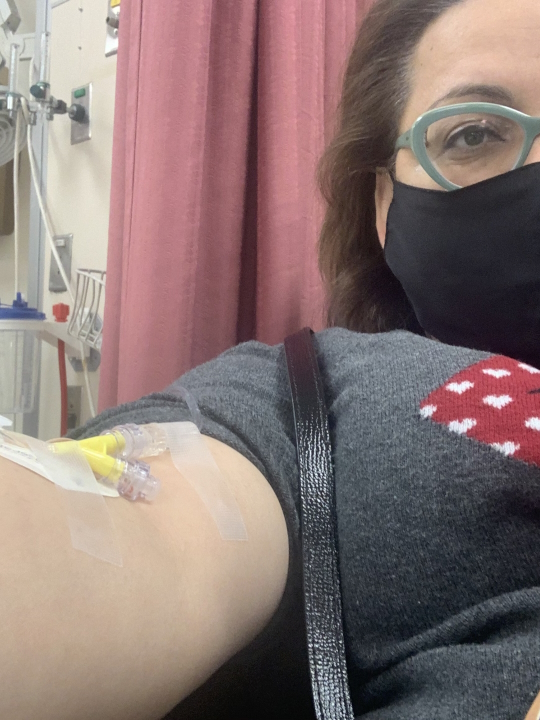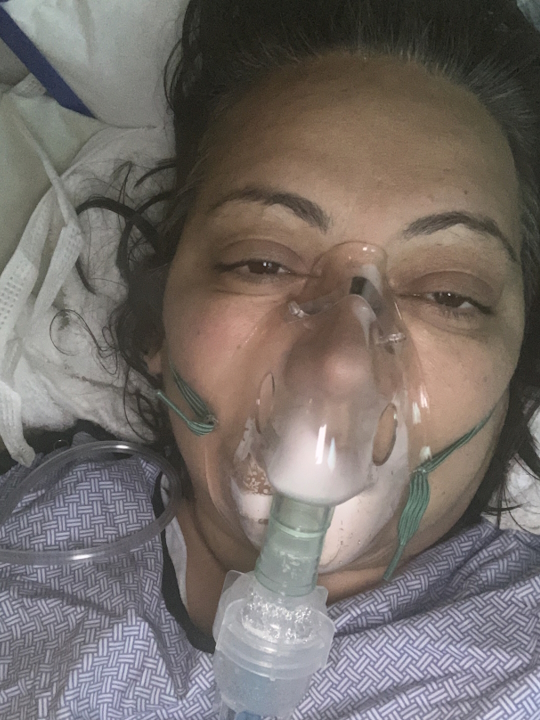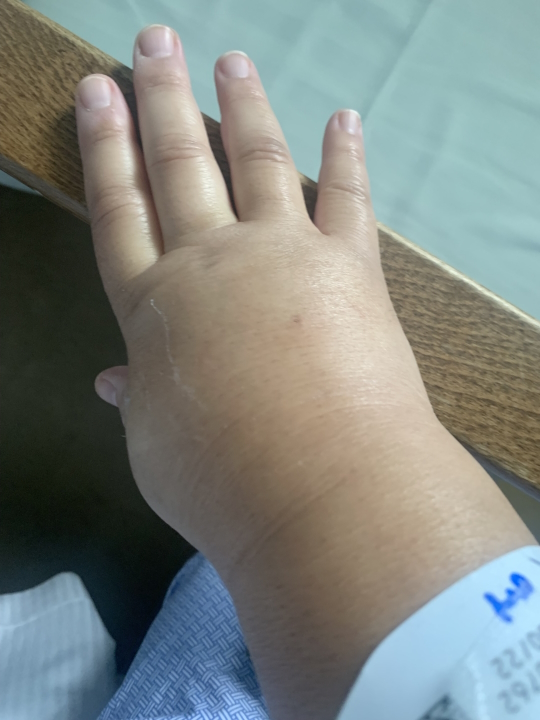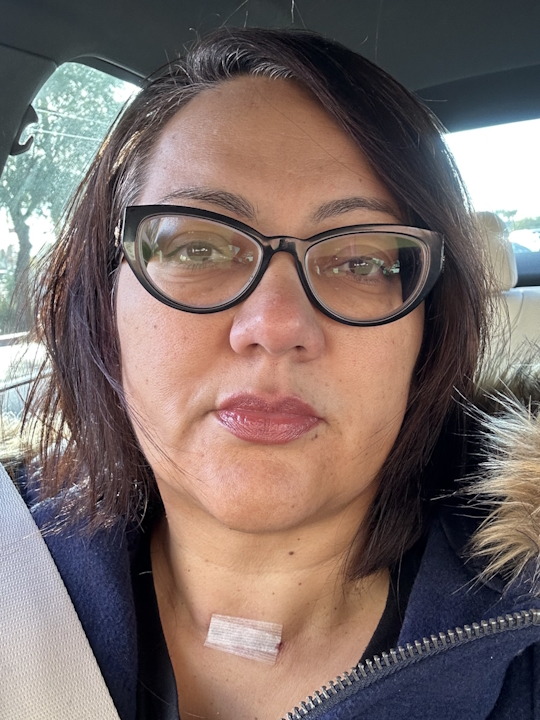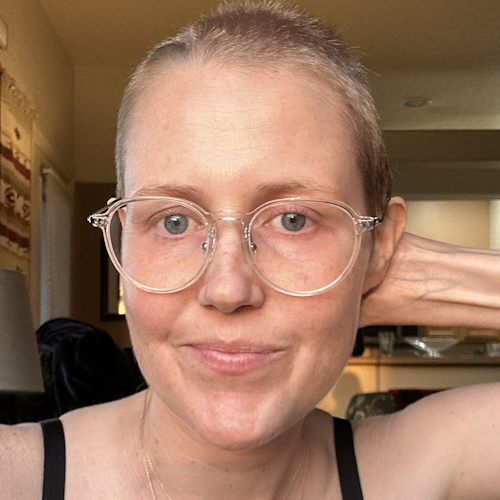Chasity’s Stage 1A Uterine Cancer Story
Interviewed by: Taylor Scheib
Edited by: Katrina Villareal

Chasity was diagnosed with stage 1 uterine cancer in 2022 after a decade of persistent symptoms that were initially misdiagnosed as perimenopause. Her story reflects the challenges of navigating a complex healthcare system while advocating for her health.
Chasity’s symptoms began in 2012 with irregular bleeding, which was initially attributed to perimenopause and ovarian cysts. Despite undergoing multiple diagnostic procedures, including D&Cs, saline sonograms, and endometrial biopsies, her symptoms persisted without a clear diagnosis. She experienced heavy bleeding, severe anemia, and fatigue, yet her doctors repeatedly dismissed these as common symptoms of perimenopause.
Chasity’s condition worsened over the years. The heavy bleeding became so severe that she passed large clots and required weekly iron infusions due to dangerously low hemoglobin levels. Despite her worsening condition, her OB/GYN continued to attribute her symptoms to perimenopause, advising her to take Provera, a hormonal medication that caused her additional side effects.
Frustrated by the lack of answers, Chasity sought a second opinion from another OB/GYN who, concerned about her symptoms, recommended another endometrial biopsy. This biopsy finally revealed the presence of endometrial carcinoma in her uterus. Upon receiving the diagnosis, Chasity felt a mix of shock and fear, questioning whether the cancer had spread due to the length of time she had been experiencing symptoms.
Her treatment involved a full hysterectomy, including the removal of her ovaries and some lymph nodes to check for metastasis, and a pelvic wash. Fortunately, the cancer was contained within her uterus, and she was diagnosed with stage 1A uterine cancer. Despite being relieved that she wouldn’t need chemotherapy or radiation, Chasity faced a challenging recovery from the surgery due to complications.
After returning home, Chasity struggled with severe surgical menopause symptoms, including night sweats, joint pain, abdominal pain, and heightened anxiety. These symptoms were so intense that she began to question whether removing her ovaries was the right decision. In addition to her cancer diagnosis, Chasity was also diagnosed with primary hyperparathyroidism, which likely contributed to her difficult recovery.
Throughout her experience, Chasity emphasized the importance of trusting one’s intuition, seeking second opinions, and being persistent when something feels wrong. Her story is a powerful reminder for women to advocate for their health, be aware of symptoms, and prioritize their well-being.
- Name: Chasity J..
- Age at Diagnosis:
- 50
- Diagnosis:
- Uterine Cancer
- Staging:
- 1A
- Symptoms:
- Irregular bleeding that progressed to heavy bleeding with large clots
- Severe anemia
- Exhaustion
- Treatment:
- Surgery: full hysterectomy, including ovaries and some lymph nodes
- Pelvic wash
This interview has been edited for clarity and length. This is not medical advice. Please consult with your healthcare provider to make informed treatment decisions.
The views and opinions expressed in this interview do not necessarily reflect those of The Patient Story.

Inspired by Chasity's story?
Share your story, too!
More Uterine Cancer Stories
- 1
- 2


